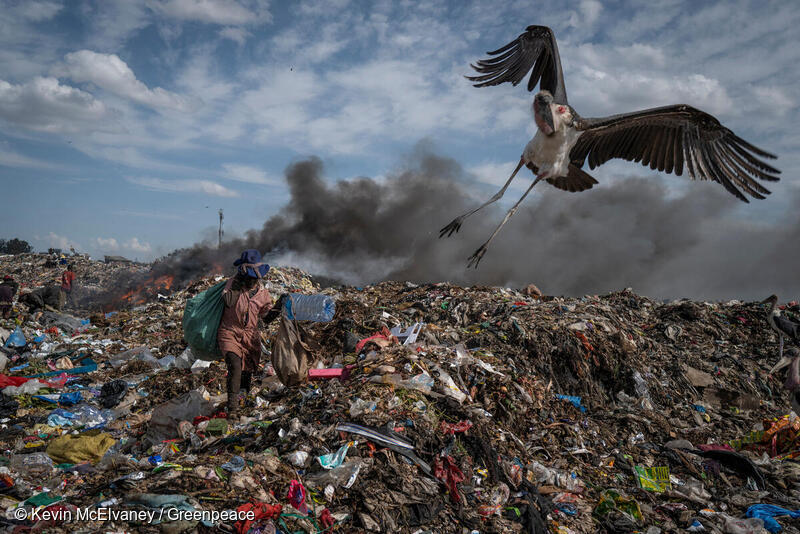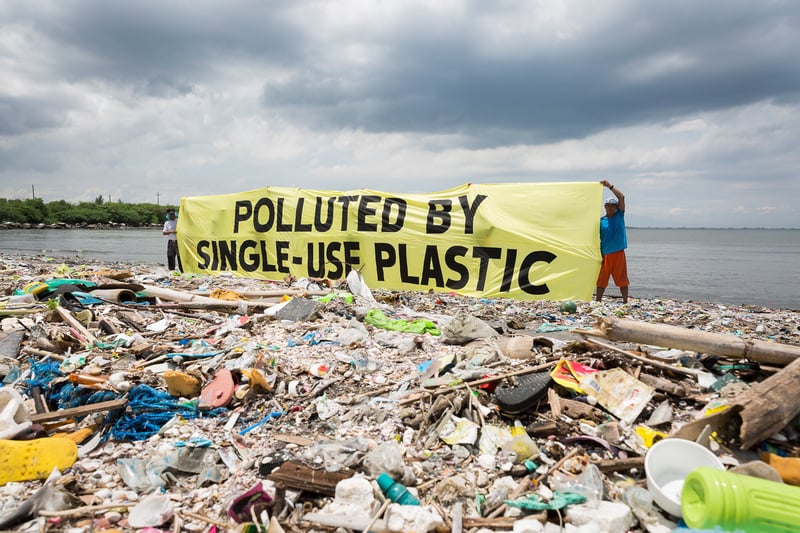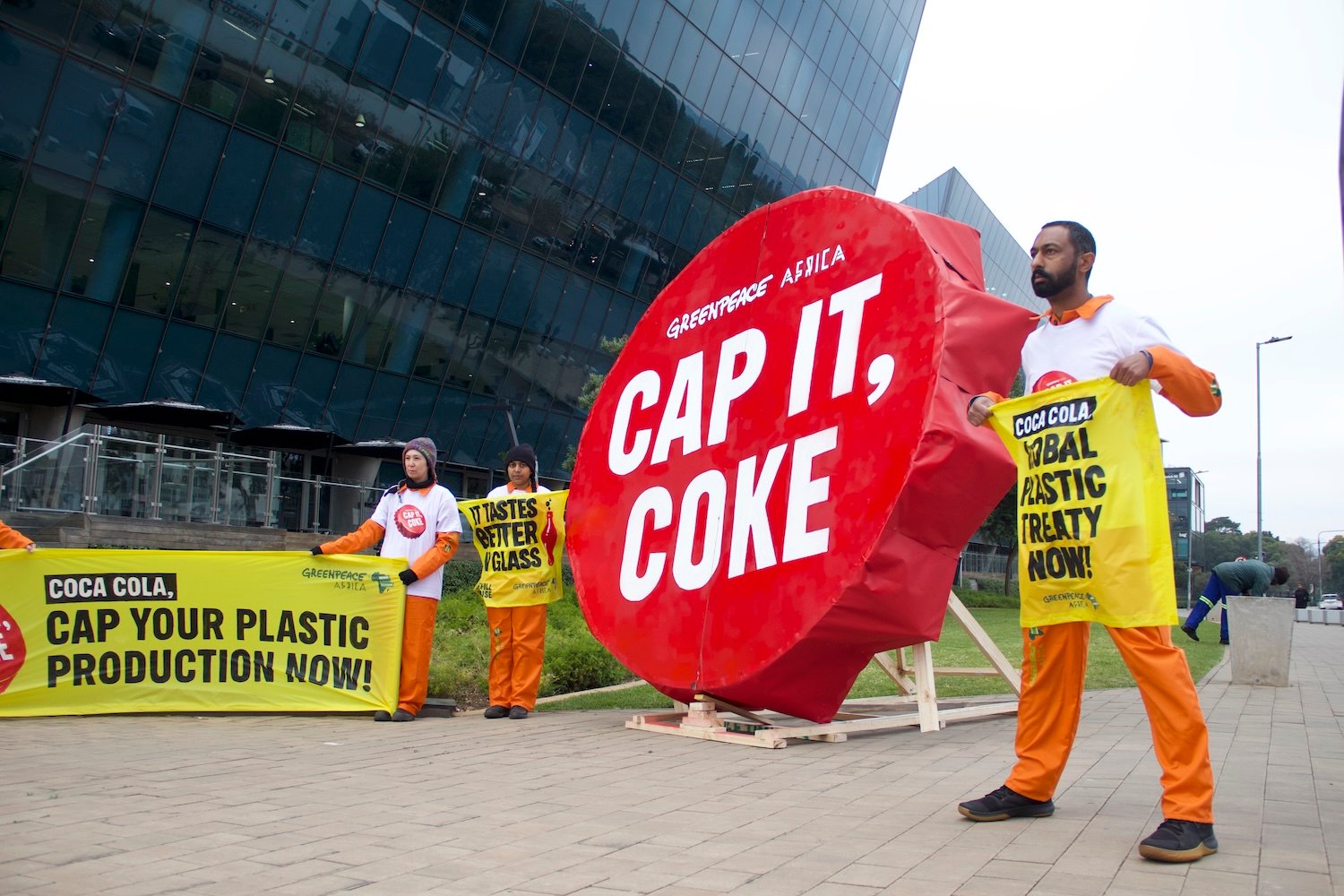“We celebrate when we see blue sky and share pictures with each other on WeChat” (China).
“Little kids with chronic respiratory illnesses are the norm here, not the rarity” (India).
“If you clean your nostrils with a white material, you come up with a jet black residue. If you walk barefooted, the soles of your feet turn black” (Nigeria).
“I became a father five months ago and air quality has become a reason to stay indoors against our will for most of the winter” (Poland).
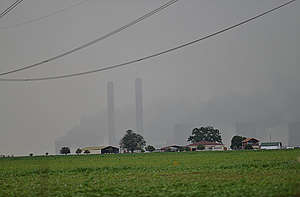
Duvha coal power station, just outside eMalahleni (Witbank). Commercial agricultural land also surrounds the coal power station.
In 2017, The Guardian shared readers’ experiences of living in countries affected by air pollution[1]. These are just a few of the eye-opening quotes from citizens living in air-polluted countries around the world. Air pollution is one of the most pervasive threats to human health. That’s why this year’s World Environment Day is centered around how we can combat this pollution that plagues both our skies and our lungs.
Every year on 5 June, over 100 countries celebrate World Environment Day. Since 1974, World Environment Day has been the United Nation’s principal vehicle for encouraging awareness and action for the protection of our environment. The theme of the celebrations usually focuses on environmental challenges that the host nation faces in particular. This year, China will be the nation that will host official celebrations and with China being notorious for its poor air quality, it comes as no surprise that the theme for 2019 will be air pollution. With the UN Environment website stating that approximately 7 million people worldwide die prematurely each year from air pollution, and that 4 million of these deaths occur in Asia-Pacific, it is vital that governments, industry, communities and individuals come together to explore renewable energy and green technologies, so as to improve air quality in cities and regions across the world.
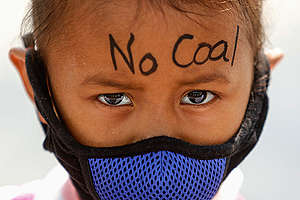
A young member from Songkhla-Pattani Anti-Coal Network draws “No Coal” on her face during the anti-coal power plant rally at United Nations.
With the causes of air pollution, including the burning of fossil fuels, the use of insecticides and pesticides in agriculture, as well as exhaust fumes and mining operations that release dust and chemicals into the air [2], trying to reduce air pollution may seem like a somewhat monumental task. And yes, it would be no easy feat and would take a huge shift in how countries operate their industries, and in how citizens lead their lives. However, there are things that you can do in your everyday life that will contribute towards the fight for cleaner air.
There is a worldwide movement that is calling for people to break free from plastic and here at Greenpeace Africa, we too are heeding the call. However, the main focus of breaking free from plastic has been for the protection of our oceans, but what few people realise is that the use of plastic has negative implications that reach much further than our sea shores. Plastic causes air pollution too and this is something that, I am embarrassed to say, has very seldom crossed my mind. While walking around with my reusable bags, filling my reusable coffee cup far too many times, and enjoying my morning smoothie through my metal straw, my thoughts have only ever been filled with images of saving our precious marine life. I think this, however, stems from the fact the plastic pollution in our oceans is one of the most highly visible ways in which plastic is detrimental to our environment. When it comes to air pollution from plastic, the effects are less visible, yet this does not take away from how significant these effects are.
According to the Conserve Energy Future website [3], most plastic is made from fossil fuels which, when mined, release toxic emissions. Moreover, since plastic is a petroleum-based substance when it is burned, the fumes also contribute to air pollution which, in turn, is contributing to global warming [4]. Plastic is filling landfills due to its slow decomposition rate. In countries that do not have formal solid waste management facilities, solid waste, including plastic, is disposed of via open incineration [5]. This is particularly a problem in lower and middle-income countries, such as African countries, thus exposing citizens to hazardous levels of air pollution.
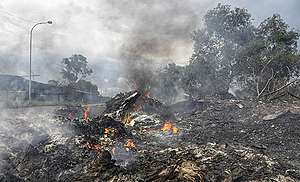
Greenpeace Malaysia has been conducting a field investigation on the broken system of recycling and how it impacts Malaysian society. The findings were shocking: a new ‘dump site’ of plastic waste from more than 19 countries — most of them are developed countries. The investigation found illegal practices, and blatant violations causing environmental pollution as well as harming people’s health conditions.
Since China banned plastic waste imports in January 2018, countries in Southeast Asia – particularly Vietnam, Thailand and Malaysia – have accepted an increased amount of plastic waste. Between January and July 2018 alone, Malaysia imported 754,000 metric tonnes of plastic — the weight of approximately 100,000 large elephants. It came from countries like the United States, Japan, UK, Australia, New Zealand, Finland, France, Belgium, Germany, Spain, Sweden and Switzerland.
Therefore, as citizens of the planet, we also need to be taking hasty individual strides towards combating air pollution, and we need to start now! As such, it is high time for people to support the expansion of sustainable zero waste practices and this is something that you, reading this post, can easily partake in. Breaking free from plastic is easier than it seems! I will continue using me reusable shopping bags, coffee cups and straws with the turtles in mind. However, knowing that my individual attempt at a zero-waste lifestyle is much more far reaching than I ever realised has driven my passion to break free from plastic to even greater heights!
This World Environment Day, as a way to emphasise the broad scale impact of how plastic, not only pollutes our oceans, but also our skies, we call on you to celebrate the protection of our air by showing us how you, as an individual, reduce your plastic use in your everyday life. How are you taking strides towards living a zero-waste lifestyle? Take a photo or video of how you are beating air pollution by breaking free from plastic. Make sure to tag us @greenpeaceafrica and use the hashtags #WorldEnvironmentDay #BeatAirPollution and #BreakingFreeFromPlastic. Be a part of the movement that seeks to protect our Mother Earth!
Notes:
[2] https://www.conserve-energy-future.com/causes-effects-solutions-of-air-pollution.php
[3] https://www.conserve-energy-future.com/causes-effects-solutions-of-air-pollution.php
[5] https://medium.com/vital-strategies/combating-plastic-and-air-pollution-on-earth-day-d9c06f1ca219

